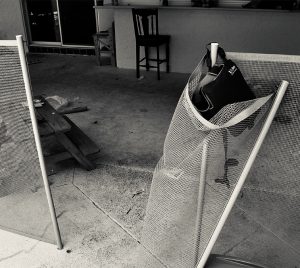In 2022, the 2-year-old child of our clients drowned in the swimming pool of a Central Florida house the family rented on AirBnb’s platform. It took less than a minute before she was pulled out unconscious, and despite the medical team’s every effort to keep her alive, she tragically died weeks later. The investigation revealed that the house was not equipped with a compliant child safety fence, and as a result, Leesfield & Partners attorneys filed a lawsuit against multiple parties, including the owner of the home located in Osceola County and AirBnb.
In the recent past, Leesfield & Partners has litigated several pool drowning cases with liabilities resting on property owners, pool contractors, and property managing companies. In one South Florida case that resulted in the drowning of a toddler, Ira Leesfield and attorneys at the firm were able to secure a seven-figure settlement against multiple defendants for the inadequate installation of a defective pool fence.
Florida Laws and Local Regulations
Every year, there are 450+ total pool drowning fatalities in Florida and almost 30% involve children under 5 years. In response to this preventable epidemic, Florida and local governments have enacted the strictest pool safety laws in the country to prevent tragedies like in the lawsuit described above.
For example, Miami-Dade Ordinances require safety barriers for all new swimming pools. The failure to erect a safety barrier will result in a failed final inspection by the Department of Planning and Zoning. The Florida Building Code (incorporated to Florida Law) provides that “outdoor swimming pools shall be provided with a barrier with the clear intent to stop or decrease the number of drownings in Florida, which is the leading cause of death of young children.” A young child is defined as “a child under the age of 6 years.”
The minimum height of the safety barrier shall be not less than four feet, and it shall be erected around the swimming pool so the area is enclosed entirely, prohibiting unrestrained admittance. A pool gate must use a spring lock mechanism, so that they close and fasten automatically at all times.
Short-Term Rentals and Pool Fences
In Florida, all short-term rentals must be registered with the State’s Department of Business and Professional Regulation. Depending on the property’s location, homeowners and property managers alike must meet several additional requirements enacted by local governments.
 In Miami-Dade County, a property that is registered as a short-term rental must have safety barriers erected, along with door latches and sound alarms for all swimming pools when they are to be used by anyone under the age of 6. In other words, anyone who lists their Miami-Dade county home with a swimming pool must have a safety barrier.
In Miami-Dade County, a property that is registered as a short-term rental must have safety barriers erected, along with door latches and sound alarms for all swimming pools when they are to be used by anyone under the age of 6. In other words, anyone who lists their Miami-Dade county home with a swimming pool must have a safety barrier.
Recently, a young child drowned in the swimming pool of a Mami house that was booked via AirBnb. Law enforcement’s investigation is currently ongoing, however, early statements made by Chief of Police Manuel A. Morales seems to have solidified the fact that there was no safety fence at all to prevent the child to access the pool:
“As the police chief of Miami, I am filled with anger, heartbreak, and disappointment as we witness a child clinging to life and a family of tourists desperately holding on to hope. This tragic situation has arisen because those who valued profit over human life chose to disregard the simple laws designed to keep people safe. The operators of what amounts to an illegal short-term rental business have created conditions that have caused immense suffering. The Miami Police Department is using every tool at its disposal to hold the operators of Airbnb accountable for their reckless and callous actions. Our thoughts are with the child fighting for their life and the family enduring this nightmare. We will not rest until justice is served for them and the community. There is a duty to protect your clients or your business and this short-term rental violated some of our…not only our building laws, our codes that put these folks at risk. There were several safety violations that were in place. Lack of a pool fence was one of them,” said Morales.
Safety and Online Platforms
Since the notable advent of online platforms for short term vacation rentals, parts of Florida have seen an astronomical increase in traffic in quiet neighborhoods and well as the unending desertification of thousands of condominiums. Worse, guests and hosts have fallen preys to incredible acts of negligence as well as intentional acts, resulting in injury or death. These incidents include illness from legionnaire’s disease, carbon monoxide exposure, drug-related crimes and drug residue, lack of maintenance, rapes, murders, and drownings.
The lack of warnings to guests as to the negligent past of a host or the problems that may have occurred in the past in listed properties in 2024 is dangerous and confounding. With nearly 2 million short-term vacation rental listings in the United States, these online platforms have chosen litigation over customer safety, which contradicts every single “safety policy” these platforms advertise and push in front of browsing customers. Along with renting properties, a false sense of security is sold to innocent guests who pay for a host’s careless behavior every single day.
 Florida Injury Lawyer Blawg
Florida Injury Lawyer Blawg


